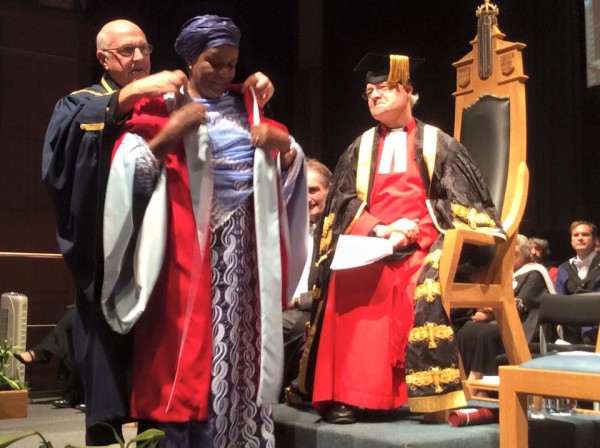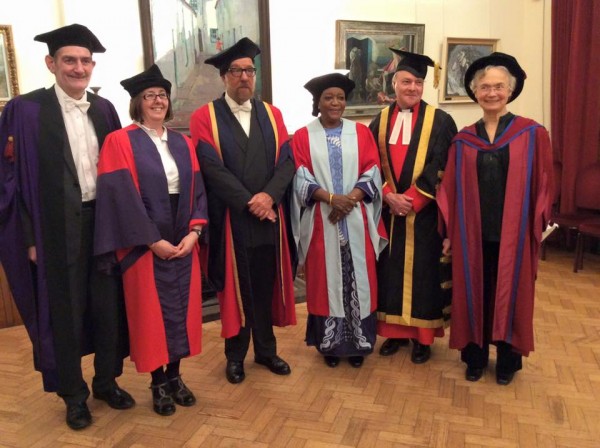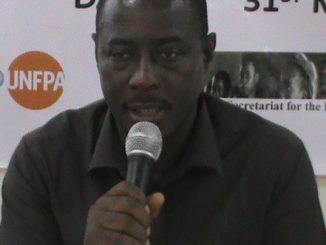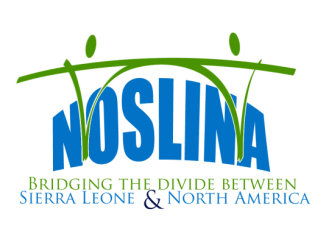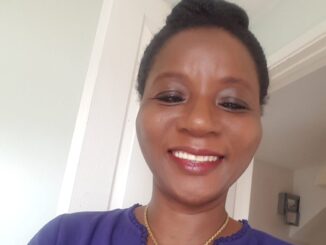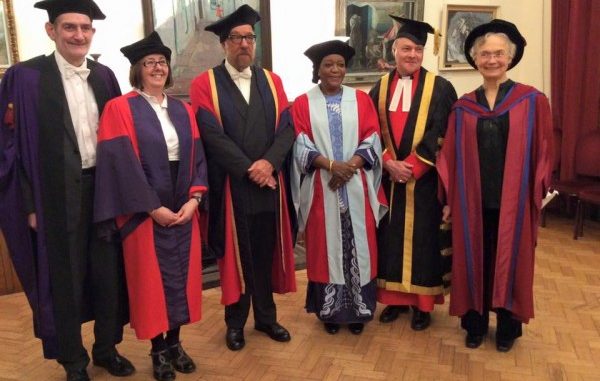
On November 26, the United Nations Under- Secretary General and the Special Representative of the Secretary General on Sexual Violence in Conflict, Mrs. Zainab Bangura, received an honorary doctoral degree from the University of Aberdeen in Scotland in recognition of her work to advance the cause of women’s rights in some of the poorest and most war-torn places on the planet.
Below, is her graduation address and some pictures from the ceremony.
GRADUATION ADDRESS
DR ZAINAB HAWA BANGURA
SPECIAL REPRESENTATIVE OF THE UNITED NATIONS SECRETARY-GENERAL ON SEXUAL VIOLENCE IN CONFLICT
University of Aberdeen, Scotland
26 November 2015
Chancellor, Vice-Chancellor
Distinguished Members of Staff
Graduates
Ladies and Gentlemen,
It is a great honor to be here with you this afternoon.
A graduation ceremony is a moment in time when our sense of achievement and sense of anticipation mix in equal measure. It marks both an academic milestone, and the start of a new journey into the challenging, ever-changing world beyond the gates of this esteemed institution.
Whatever path you choose to embark upon, let it be informed by the mission of this University, which was founded over five centuries ago with the noble aim of being “open to all and dedicated to the pursuit of truth in the service of others”. It is an inspiring and encouraging thought that generations of students, on this historic campus, in these hallowed halls, have internalized those values: “the pursuit of truth in the service of others”.
Let me start by conveying warm and sincere gratitude to the University of Aberdeen for conferring upon me today an Honorary Doctoral Degree in recognition of my work to advance the cause of women’s rights in some of the poorest and most war-torn places on the planet – places, where ancient traditions run deeper than rivers, and it often seems just as difficult to change their course.
I would like to dedicate this honor to a woman who changed the course of my life, my late mother, Sama Kanu. She devoted her energy and scarce resources to one goal: sending her daughter to school. This was in a time and place, in rural Sierra Leone, when an adolescent girl was more likely to be getting groomed for marriage, than to be sitting at a school desk alongside her male peers. Despite her limited exposure to the world beyond her village, she instinctively understood the power of education. She taught me that – education is a “golden key” that not only unlocks doors, but turns walls into windows of opportunity, barriers into bridges, and glass ceilings into clear blue skies above.
My mother cannot be here today, so let me extend this dedication to all of the mothers in attendance: you are the unsung heroes of the student experience. You are like the rivers that, slowly but surely, have the power to move mountains.
~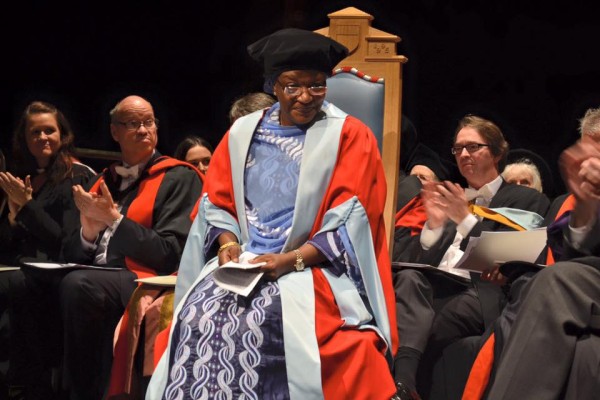 ~~
~~
On this day of celebration, let us pause to remember that there are currently 62 million girls who are not in school. Just as your life’s journey matters to you, the fate of each of these girls matters to them, and it matters to our world. Human rights are universal. This means that the lottery of gender and geography should not determine destiny. If it did, then the lottery ticket I received at birth should have made it impossible for me to be standing before you today.
I have lived through poverty, privation, discrimination and over a decade of brutal civil war. I came from a family in which no woman had ever been taught to read or write – not even her own name. Against enormous odds, my mother insisted that I have the chance to go to school and attend university. I went on to become a women’s rights activist, to represent the Government of Sierra Leone as Minister of Health and Foreign Minister, and to serve today as United Nations Under-Secretary-General on Sexual Violence in Conflict.
In my current role, I work every day to amplify the voices of women on an issue that has been called “history’s greatest silence” and the “world’s least-condemned war crime”. This work has taught me that we cannot prevent what we do not adequately understand. Knowledge is power. It is humanity’s most cherished heritage. Yet, wartime rape has been an omission of history, because women have never held the pen with which official accounts of war and peace are written.
It should shock us all that, in the 21st Century, women’s bodies are still being used as battlefields in wars started by men. The women I met with recently in Syria told me: “This is not our war. We continue to fight for peace”. Conflict diverts scarce resources from healthcare and education to military spending, thereby stunting progress on all human development indicators. It is my firm conviction that every mind is needed – working with passion and compassion – to solve the complex moral, legal and political problems of our time.
Education is both a right in itself, and a pre-requisite to realizing all other human rights. It is the single most important driver in building a peaceful, prosperous, healthy and equitable society. Indeed, studies have shown that no country has ever achieved sustainable economic growth without first attaining a literacy rate of 45%. Too often, a girl who could have changed our world for the better is locked out of that future by the circumstances of her birth, or the customs of her community. They are locked out of education by violence, discrimination, early marriage, early pregnancy, poverty, the burden of household labor and, sometimes, simply by the entrenched belief that they are less worthy than their male peers.
There are many different locks on the door of opportunity that keep girls dependent and socially paralyzed. But if there is one “master key”, one “golden key”, for unlocking potential it is the transformative power of education. Countries with more girls in secondary school have lower maternal mortality rates, lower infant mortality rates, lower HIV/AIDS prevalence, and better child nutrition.
So let us not, for a single moment, take our education for granted. We can all find ways to pass the golden key we have received to the next generation of those who risk being locked out.
~~~
As you leave here today, spare a thought for girls like Malala Yousafzai who have been gunned down merely for going to school; for the three million Syrian children who have no school to go to; and the hundreds of Nigerian girls who have been abducted from their classrooms with impunity. Let us remember that two-thirds of the illiterate people in this world are women – like the women of my own family, just a generation ago. These issues affect us all: there are no bystanders.
Earlier this year, I visited Iraq where I met two young Yazidi girls who had survived ISIL captivity. They had dropped out of their studies because of the shame and trauma of what they had endured. I told them that refusing to abandon their dreams would be the greatest blow they could strike to the ideology of the militants who held them captive. These girls have since been resettled in Germany, and I was reunited with them on a visit to Berlin. I found them greatly changed. Today, they are filled with hope for the future – one aspires to be a teacher, and the other a doctor.
Like these brave girls, each of us here can use our education as a force for the greater good: for gender equality, poverty alleviation, public health and social justice. In this way, the ripple effects will extend outwards to touch countless lives, and build into a wave that can turn the tide of history.
~~~
In September this year, the United Nations adopted the 2030 Agenda for Sustainable Development, which expresses a determination to “ensure that all human beings can fulfil their potential in dignity and equality” and to “foster peaceful, just and inclusive societies that are free from fear and violence”. We have set our sights on 2030 as the expiry date for gender-based discrimination and violence in all its forms.
But unlike disasters or explosions, human progress is slow and incremental. To paraphrase Dr. Martin Luther King Jr: “The arc of history is long, but it bends towards justice”. Always remember that history doesn’t make people – people make history. The world is more malleable than you think, so let us bend history and shape it in “the pursuit of truth and the service of others”. Your future begins here, but you never know where your influence will end.
This is your day.
I congratulate you and wish you well.
Thank you.

